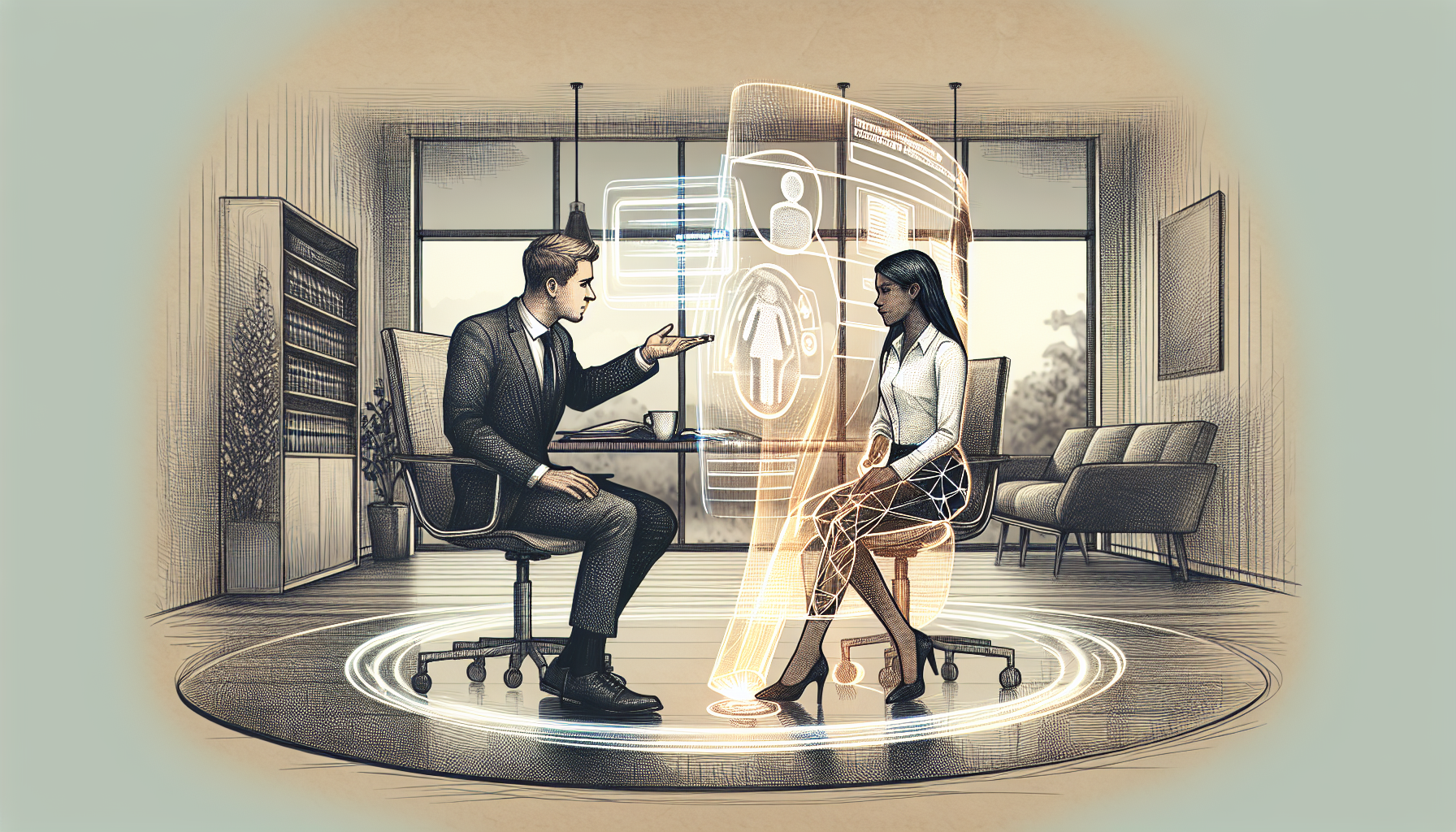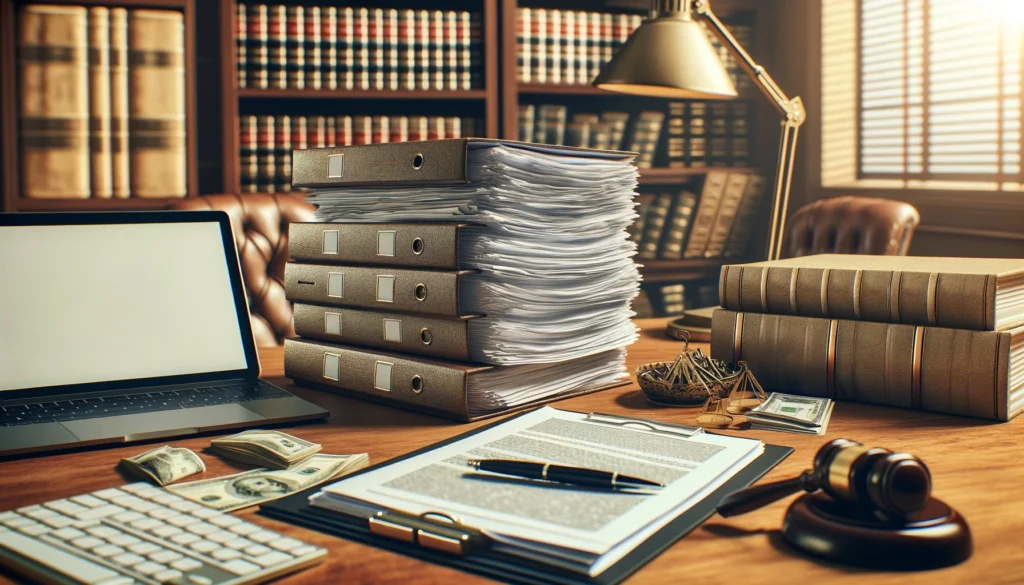
Setting the Stage: The Modern Paralegal’s Toolbelt
In today’s fast-paced legal environment, paralegals are increasingly recognizing the transformative potential of Artificial Intelligence (AI). The introduction of AI mechanisms, particularly in the realm of personal injury law, has made waves by dramatically enhancing both operational efficiency and client satisfaction. This infusion of technology isn’t merely a trend—it’s a comprehensive shift in how paralegals handle the intricate details of legal work.
Embracing this shift can equip modern-day paralegals with a powerful toolbelt, ensuring optimized workflows and improved client engagements. With AI tools like ChatGPT, paralegals are poised to revolutionize personal injury client counseling sessions.
Understanding ChatGPT and Large Language Models (LLMs)
At the heart of these advancements lies ChatGPT, an AI conversational agent utilizing the prowess of Large Language Models (LLMs). Developed by OpenAI, ChatGPT boasts an impressive ability to understand and generate human-like text based on vast datasets spanning numerous topics.
LLMs operate on deep learning algorithms allowing them to process, understand, and produce text that is contextually relevant and coherent. These models have the potential to comprehend intricate legal language, facilitating tasks that traditionally required extensive human effort.
Benefits of integrating ChatGPT into legal counseling are manifold:
– Efficient Data Processing: Speedy comprehension and handling of large volumes of information.
– Accuracy: Precision in recreating legal documents and advice based on learned data.
– Accessibility: Offering communication assistance in a more accessible language for clients.
Next, we delve into how these benefits materialize during client intake and documentation processes.
Also read:
Streamlining Client Intake and Documentation
Efficiency in initial client interactions sets the tone for the entire legal journey. Using ChatGPT can significantly streamline client intake by automating and refining processes. Here are some key aspects:
Client Intake
ChatGPT can act as the first point of contact, offering a structured yet empathetic engagement experience. For instance:
“`plaintext
“Kindly provide a detailed account of the incident, including the date, time, and location.”
“`
Such prompts can be easily deployed to gather the essential details without overwhelming the client.
Nuanced Information Gathering
To ensure comprehensiveness:
“`plaintext
“Please describe the extent of your injuries and any immediate medical attention received.”
“`
These prompts ensure all necessary information is captured accurately and efficiently.
Automating Documentation
Once the information is collected, ChatGPT can assist in generating detailed injury reports and documentation. This helps in reducing the time-intensive nature of document creation and allows paralegals to focus on more nuanced legal work.
As we transition, let’s explore how AI-driven communication can further elevate client interactions.
Also read:
Enhancing Communication and Clarity
Clear and empathetic communication is paramount in legal counseling. ChatGPT can greatly aid paralegals in demystifying complex legal jargon.
Simplifying Legal Terminologies
Use AI to translate technical language into client-friendly terms:
“`plaintext
“The term “comparative negligence” means that the fault for the incident is shared between both parties. Here’s how it applies to your case…”
“`
Such explanations can build client trust and ensure they are well-informed.
Crafting Empathetic Communications
Empathy in correspondence fosters better client relationships. AI can help by generating messages like:
“`plaintext
“Thank you for sharing the details of your incident. We understand that this is a difficult time for you, and we are committed to providing the support you need.”
“`
These enhancements in communication relay both professionalism and compassion.
Generating Follow-Up Messages
Personalized follow-ups to keep clients engaged and informed:
“`plaintext
“We wanted to update you on the status of your case. Your medical reports have been reviewed, and we are now moving forward with the next steps.”
“`
This ensures consistent and transparent communication through the case lifecycle.
Up next is the considerable impact of AI on case management and organization.
Also read:
Efficient Case Management and Organization
Organizing and managing the plethora of details within a legal case is a paralegal’s forte. With ChatGPT, this task is not only simplified but also rendered more efficient.
Case Details and Timelines
AI can collate and organize case details logically:
“`plaintext
“Outline the key events of the case in chronological order and highlight critical deadlines.”
“`
This structural organization aids in maintaining a clear trajectory of the case.
Reminders and Tracking Progress
Set up reminders for important dates and track ongoing tasks:
“`plaintext
“Generate a list of upcoming deadlines and send reminders two days prior to each.”
“`
Such prompts ensure no critical dates or actions are missed.
Task Management
ChatGPT can assist in generating and prioritizing task lists:
“`plaintext
“Prepare a prioritized list of tasks for this case based on urgency and importance.”
“`
This helps in ensuring efficient case management and workload distribution.
Building on this foundation, we move to crafting persuasive and coherent legal documents.
Also read:
Crafting Persuasive Documents and Arguments
An essential skill in legal practice, drafting persuasive documents can be significantly enhanced with ChatGPT.
Demand Letters and Legal Arguments
ChatGPT can assist in creating compelling demand letters:
“`plaintext
“Draft a demand letter emphasizing the defendant’s liability and the financial restitution required.”
“`
This enables the creation of detailed, persuasive legal documentation.
Enhancing Persuasiveness
Advanced prompts can fine-tune the tone and clarity:
“`plaintext
“Refine this argument to clearly highlight the emotional and financial impact on the client while maintaining a formal tone.”
“`
Such guidance ensures documents are both impactful and adherent to legal formalities.
Alongside these capabilities, it’s crucial to consider confidentiality and ethics.
Also read:
Ensuring Confidentiality and Ethical Considerations
As with any technological advancement, maintaining client confidentiality and adhering to ethical guidelines are paramount.
Confidentiality Best Practices
Ensure all AI interactions comply with privacy regulations:
– Data Encryption: Utilizing encrypted channels for all communications.
– Anonymity Controls: Avoiding the use of personally identifiable information in prompts and responses.
Ethical Guidelines
Adhering to ethical boundaries:
– Transparency: Inform clients when AI tools are being employed.
– Supervision: Routinely monitor AI-generated content to ensure its accuracy and appropriateness.
As we look ahead, the future of AI in personal injury law continues to promise transformative changes.
Also read:
Future Potential: Evolving With AI
AI’s role in personal injury counseling is just the beginning. Continuous advancements point towards even more sophisticated tools that can further assist paralegals in delivering exceptional legal services.
Encouraging ongoing learning and adaptation will ensure that paralegals remain at the forefront of this technological evolution, consistently unlocking new efficiencies and levels of client satisfaction. The journey with AI in law is poised to be both challenging and immensely rewarding.


